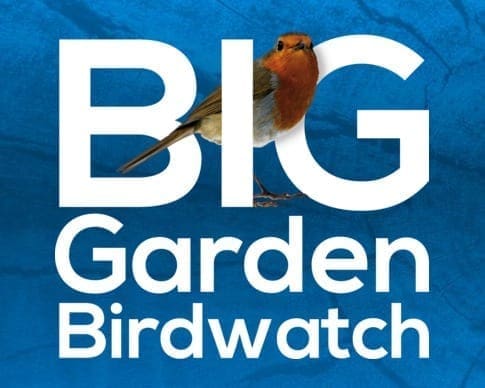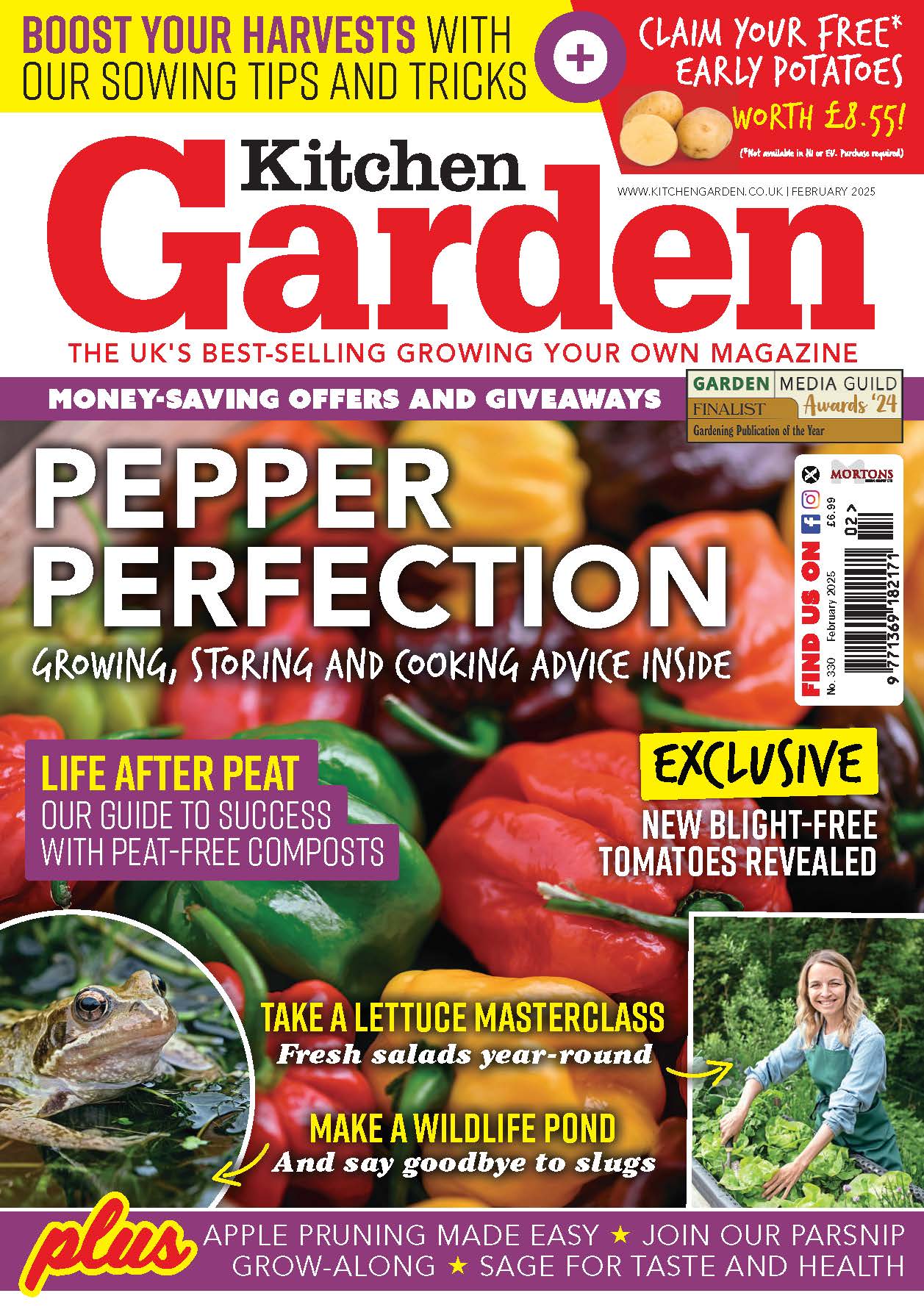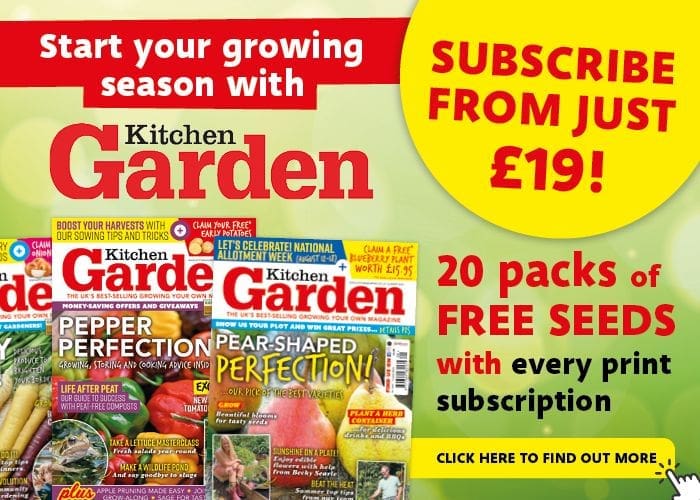Read more on this topic and other garden news updates, just for Kitchen Garden subscribers
Countdown to Birdwatch
This year’s RSPB Big Garden Birdwatch takes place over the weekend of January 27 to 29.
More than 497,000 people took part in last year’s Birdwatch, so sights are set on breaking the half-million mark. The Birdwatch is now a three-day event, so if you’re busy over the actual weekend, or the weather isn’t cooperative, you can still do your count on the Monday.
All you need to do is watch the birds in your garden or local park for one hour and make a note of the maximum number of each species that you see at any one time. Then upload your results on the RSPB website, or fill in the paper form and post it back for free. There’s also a Big Schools Birdwatch, with activities and support materials tailored to allow classes of all ages to take part.
Find out more at https://www.rspb.org.uk/get-involved/activities/birdwatch/everything-you-need-to-know-about-big-garden-birdwatch/ and register and download your free Birdwatch pack from https://www.rspb.org.uk/get-involved/activities/birdwatch/ By registering you’ll also qualify for a 20% discount plus free delivery from the RSPB shop.
25-year plan falls short on peat
Targets: Peat-free compost
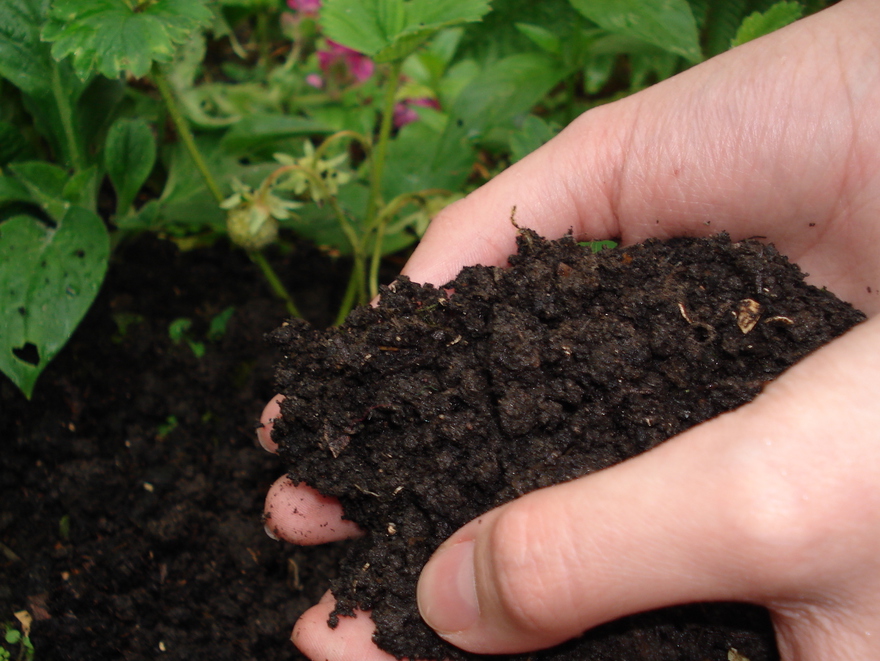
The Government’s ‘landmark’ 25 Year Environment Plan, launched on January 11, sets targets to improve our environment over a generation – but environmentalists were quick to point out that what we need is not long-term statements of good intent but practical action now.
Peat is a case in point. The plan restates the existing target to end all peat use in horticulture by 2030, and ‘further measures’ are threatened if there is not sufficient progress by 2020. In the meantime, Defra will publish an England Peat Strategy in late 2018, continue to jointly fund research with the horticultural industry to overcome the ‘barriers’ to peat replacement, and continue to support the industry as it puts its Responsible Sourcing Scheme for Growing Media into practice. However, 2020 was meant to be the year by which amateur gardeners stopped using peat – and with just two years left, that is clearly not going to happen without decisive action now.
Friends of the Earth senior nature campaigner Paul de Zylva says: “The long-awaited environment plan is full of ambition but short on detail and action. Ministers say they recognise the importance of our peatland for wildlife, climate action and holding back flood waters, but they have wasted the past decade hoping the horticultural sector would take voluntary action to end peat use and to give customers proper choice of quality alternatives. Ministers now say they’ll wait another two years before deciding what else to do. That’s more like a plan for inaction.”
You can read the 25 Year Plan, or a summary, at https://www.gov.uk/government/publications/25-year-environment-plan
The Organic Gardening Catalogue: now from Dobies
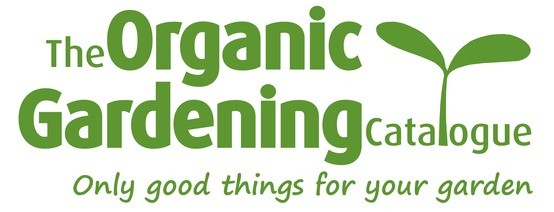
The latest news on the realignments at Garden Organic is that The Organic Gardening Catalogue will continue, under new ownership. Dobies (part of the Suttons group) has bought the seed and retail business of Chase Organics, which has produced The Organic Gardening Catalogue in partnership with Garden Organic for the past 25 years.
The Organic Gardening Catalogue will therefore continue, under that name and with all of its existing product ranges, and previous customers will receive a new catalogue at the end of January. In the meantime, you can continue to shop online at https://www.organiccatalogue.com/ and existing orders will be processed as normal. The partnership with Garden Organic will also continue: its members will still get a 10% discount on all orders, and a percentage of sales will continue to go to Garden Organic.
Dobies plans to expand the range on offer in the catalogue. Its product development manager, Rob Smith, winner of the BBC’s ‘The Big Allotment Challenge’ and a long-time Garden Organic member, will have a key role. Rob, a regular contributor to Kitchen Garden magazine, says: “By partnering with Garden Organic, we can offer customers an even broader range of products to enhance their enjoyment of plants, gardening and their indoor and outdoor spaces. We will be including new, organically produced plants, including a grafted selection, to enhance the two organisations’ ranges.”
Chase Organics, meanwhile, will focus on developing its range of seaweed-based plant nutrition products.
Read more at https://www.gardenorganic.org.uk/news/organic-gardening-catalogue
Green the grey!
Greening Grey Britain: local residents work on the beds at Elliot Street Community Garden in Edinburgh. Picture: RHS/Julian Weigall
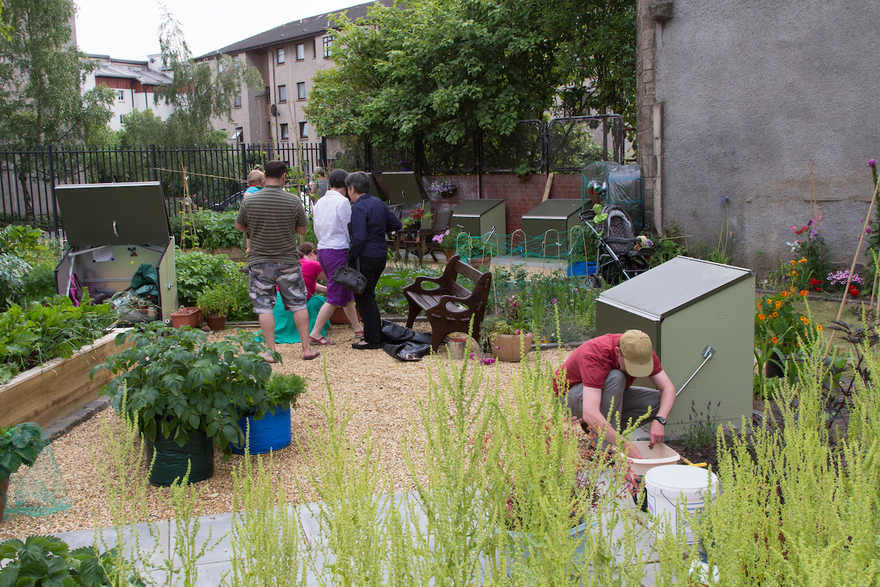
Is there a grey spot in your neighbourhood that you want to transform into a green space for people and the environment? The RHS is looking to support community gardening projects across the UK in 2018, and has grants of £500 up for grabs. Imagine a tarmacked verge reborn as a vibrant border, or a neglected area transformed into a productive garden – and then apply for expert hands-on support, plus up to £500-worth of plants and materials, to bring your green vision to life.
To be eligible, groups must take part in RHS Britain in Bloom or It’s Your Neighbourhood, or be a registered RHS-affiliated society or part of the RHS Campaign for School Gardening. Projects must be partnership-based, intergenerational, and meet one or more of this year’s themes:
=A space that will help to address local issues caused by climate change
=A garden that will promote better health and wellbeing
=A productive space with fresh, seasonal food to share and enjoy with others
=A space for wildlife and to boost local biodiversity
Find out more and read the guidance notes at https://www.rhs.org.uk/communities/news/transforming-our-communities
Guide to greener gardening
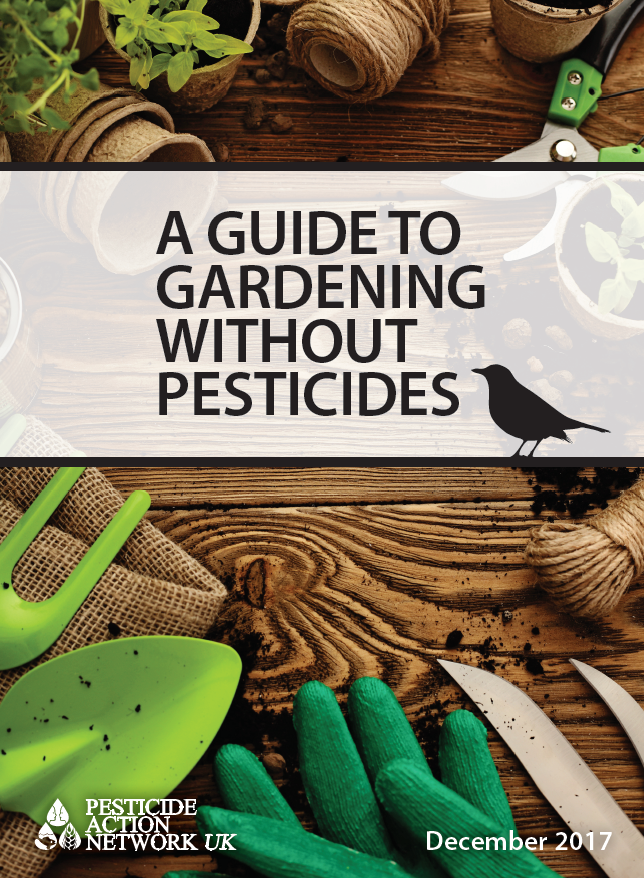
There’s an excellent new publication for gardeners from pesticides action network PAN UK. A Guide to Gardening Without Pesticides covers 29 different pest and disease problems, ranging from aphids and apple scab to wireworms and white rot, and suggests a range of proven organic and cultural solutions. More and more people are moving towards a more organic approach to growing flowers and food crops, says PAN UK, and its hope is that this guide will help both those that are already growing without pesticides and those who want to make the change.
The guide is free to download, though donations towards PAN UK’s work are requested. Find out more and download your copy at http://snip.ly/i3s81#http://www.pan-uk.org/gardening-without-pesticides/

